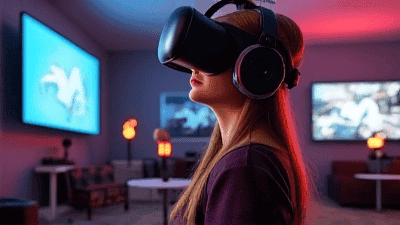
Introduction
The pursuit of mastery in gaming transcends mere reflexes and technical prowess; it is fundamentally a psychological endeavor. While often perceived as a leisure activity, competitive gaming, or esports, demands peak cognitive function, emotional resilience, and strategic thinking under intense pressure. This article delves into the intricate mental landscape that differentiates casual players from top-tier professionals, exploring the nuanced psychological mechanisms underpinning consistent, high-level performance across diverse gaming genres. It’s a field where seemingly simple actions conceal profound cognitive processes.
The significance of psychology in gaming extends far beyond individual player success, impacting game design, team dynamics, and even player well-being within the burgeoning esports industry. As competitive gaming garners global attention and substantial investment, understanding the mental attributes that drive excellence becomes paramount for coaches, aspiring professionals, and researchers alike. Current developments in neurogaming and biometric feedback highlight a scientific community increasingly focused on optimizing cognitive states for performance. Moreover, discussions around player burnout and mental health underscore the urgent need to integrate psychological principles into training regimes. What impact would it have on our understanding or practice of competitive gaming if we failed to fully comprehend the profound mental architecture that underpins elite performance?
The Cognitive Architecture of Apex Play

Attention, Memory, and Decision-Making in High-Stakes Gaming
At the core of elite gaming performance lies a sophisticated interplay of cognitive functions, much like a high-performance computer processor managing complex computations. Selective attention is crucial, allowing top players to filter out extraneous visual and auditory noise, focusing intently on critical game cues—be it an enemy's subtle footstep, an ability cooldown, or a minimap ping. This selective focus is often coupled with divided attention, enabling simultaneous processing of multiple information streams, such as tracking enemy positions while managing resource cooldowns and communicating with teammates. Research shows experienced gamers exhibit superior attentional control compared to novices, processing relevant information more efficiently.
Furthermore, working memory plays a vital role in temporarily storing and manipulating crucial game state information. A professional player might hold details like enemy ultimate abilities used, objective timers, or recent enemy movement patterns in their working memory to inform immediate tactical decisions. This rapid recall and processing capacity directly feeds into decision-making under pressure. Elite gamers do not merely react; they anticipate, leveraging pattern recognition honed through thousands of hours of play. They employ sophisticated heuristics and predictive processing, often making split-second choices that appear intuitive but are rooted in deep experiential knowledge and optimized cognitive processing. A real-time strategy player, for example, makes critical build order decisions based on subtle early game scouting information, relying on rapid assessment and memory of countless previous scenarios.
Emotional Resilience and the Flow State
Cultivating Composure and Immersion for Consistent Performance
Beyond pure cognitive processing, emotional regulation serves as the bedrock for consistent high-level gaming performance. The intense, high-stakes nature of competitive gaming can easily trigger stress, frustration (often termed "tilt"), and anxiety, which directly impair cognitive functions like decision-making and reaction time. Top-tier players are masters of emotional composure, employing strategies such as controlled breathing, positive self-talk, and cognitive reframing to mitigate negative emotional impacts. For instance, a fighting game champion might maintain calm focus after a devastating combo, preventing a "tilt spiral" that could cost them the match. This ability to decouple performance from immediate emotional responses acts like a ship's ballast, stabilizing the player amidst turbulent game situations.
Closely linked to emotional regulation is the concept of the flow state, first described by Mihaly Csikszentmihalyi. This psychological state represents an optimal experience characterized by deep immersion, intense focus, a sense of timelessness, and a perceived balance between challenge and skill. In a flow state, gamers experience peak enjoyment and performance, effortlessly executing complex maneuvers and making optimal decisions without conscious effort. Achieving flow is often facilitated by clear goals, immediate feedback, and a feeling of control, allowing players to fully immerse themselves in the game, much like perfectly catching the wind in a sail.
Understanding the direct impact of emotional states on various performance metrics is crucial. The table below illustrates how different emotional conditions can manifest in quantifiable ways during gameplay.
| Emotional State | Impact on Actions Per Minute (APM) | Impact on K/D Ratio | Impact on Reaction Time |
|---|---|---|---|
| Calm / Flow | High (e.g., 250-350) | High (e.g., 2.5-3.5) | Fast (e.g., 150-200ms) |
| Frustrated / Tilted | Low (e.g., 100-150) | Low (e.g., 0.5-1.0) | Slow (e.g., 250-350ms) |
| Anxious / Stressed | Moderate (e.g., 150-250) | Moderate (e.g., 1.0-2.0) | Variable (e.g., 200-300ms) |
As shown, maintaining a calm and focused state significantly correlates with higher APM, better kill-death ratios, and faster reaction times, all critical indicators of superior performance. Conversely, states of frustration or anxiety demonstrably degrade these metrics, highlighting the necessity of cultivating robust emotional resilience.
The Psychology of Skill Acquisition and Mastery

Deliberate Practice, Growth Mindset, and Performance Enhancement
Achieving mastery in any game is less about inherent "talent" and more about the deliberate application of psychological principles to skill acquisition. Central to this is deliberate practice, a concept popularized by K. Anders Ericsson. Unlike simply playing for enjoyment, deliberate practice is structured, focused, and aimed specifically at improving weaknesses. It involves targeted repetition, seeking immediate feedback (often through replay analysis or coaching), and consistently pushing beyond one's comfort zone. An esports team, for instance, doesn't just scrim; they meticulously review replays, isolating individual mechanical errors or strategic missteps for focused improvement sessions. This process is akin to a bodybuilder performing targeted exercises to strengthen specific muscle groups, rather than just aimlessly lifting weights.
Complementing deliberate practice is the adoption of a growth mindset, a psychological framework described by Carol Dweck. Individuals with a growth mindset believe their abilities and intelligence can be developed through dedication and hard work, rather than being fixed traits. This perspective is vital in gaming, especially when encountering plateaus or setbacks. A player with a growth mindset views failure as a learning opportunity, motivating them to analyze errors and refine strategies, while a fixed mindset might lead to discouragement and abandonment. Finally, effective goal setting provides direction and motivation. Utilizing SMART goals (Specific, Measurable, Achievable, Relevant, Time-bound) allows players to track progress, maintain focus, and celebrate incremental improvements, sustaining motivation through the often arduous journey to elite status.
Conclusion
The journey to mastering any game, as evidenced by top-tier gaming performance, is an intricate dance between mechanical skill and profound psychological insight. We have explored how cognitive functions like selective attention, working memory, and rapid decision-making form the foundational architecture of apex play. Furthermore, the capacity for emotional regulation and the cultivation of a "flow state" are critical for consistent performance under pressure, acting as powerful buffers against performance-degrading stress and frustration. Finally, the strategic application of deliberate practice, nurtured by a growth mindset and guided by clear goal setting, transforms raw potential into refined mastery. Together, these psychological tenets reveal that elite gaming is not just about faster reflexes, but about a highly optimized mental operating system.
Looking ahead, the integration of psychological training within esports is poised for significant expansion, moving beyond rudimentary advice to incorporate advanced cognitive behavioral techniques and neurofeedback. Future breakthroughs may involve personalized psychological profiles to tailor training regimens, leveraging AI to identify individual attentional biases or emotional triggers. Challenges remain in standardizing psychological support across diverse gaming genres and regions, as well as addressing the evolving mental health needs of professional players. Macro scientific policies encouraging interdisciplinary research between cognitive psychology, sports science, and computer science will be crucial. The continued emphasis on understanding and nurturing the psychological dimension promises not only to elevate individual player performance but also to foster a healthier, more sustainable, and ultimately more compelling competitive gaming landscape for all.
Frequently Asked Questions (FAQ)

Q: Is natural talent more important than psychological training in achieving top-tier gaming performance? A: This is a common misconception, often used to dismiss the rigorous effort behind professional gaming. While some individuals might exhibit initial aptitudes, such as faster reaction times or inherent spatial awareness, natural talent alone is rarely sufficient, nor is it the primary determinant of long-term success. Think of it like a raw diamond; it has potential, but without cutting and polishing, it won't shine. Psychological training, encompassing aspects like deliberate practice, emotional regulation, and a growth mindset, is the "polishing" process that unlocks and maximizes that potential. Many successful esports athletes started with average abilities but dedicated countless hours to structured practice, mental conditioning, and continuous learning. They learned to control their tilt, analyze their mistakes objectively, and strategically improve specific weaknesses, which are all learned psychological skills. Conversely, someone with immense "natural talent" but a poor work ethic or fragile mental resilience will likely buckle under pressure or stagnate without proper psychological development. Therefore, a combination of initial aptitude and extensive psychological development is ideal, but the latter is arguably more crucial for sustained, elite performance.
Q: How can I overcome "tilt" or frustration during intense gaming sessions? A: "Tilt" is a pervasive challenge in competitive gaming, referring to a state of emotional frustration or anger that negatively impacts performance. Overcoming it requires a proactive approach and a toolkit of psychological strategies. First, recognize your triggers. Is it losing to a specific strategy? A teammate's mistake? Dying early? Identifying these helps you anticipate and prepare. Second, practice immediate self-regulation techniques. Simple methods like taking a few deep, controlled breaths can lower physiological arousal. Step away from the keyboard for 30 seconds if possible, grab a drink of water, or even just close your eyes. Third, reframe your thoughts. Instead of "I can't believe I messed that up, I'm terrible," try "What did I learn from that mistake, and how can I prevent it next time?" Focus on controllable elements (your own actions, strategy) rather than uncontrollable ones (teammates, opponent's luck). Fourth, take regular breaks during longer sessions to reset mentally. If tilt becomes severe, consider stopping play for the day to avoid reinforcing negative emotional patterns. Finally, post-game analysis (watching replays) should be done with a calm, objective mindset, focusing on improvement rather than self-criticism, turning frustration into a constructive learning experience.








